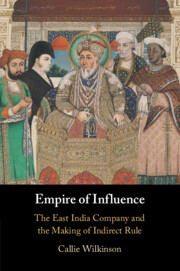This article presents an expansive history of a seemingly discrete event: the decision to extend an indentured labor system created in the Caribbean and Indian Ocean to the British colony of Natal, in South Africa, in 1860. Most work on indenture in Natal takes 1860 as a starting point and treats the migration of Indian workers under indenture in relative isolation. By contrast, this article focuses on the period preceding the first Indian arrivals and examines the colony’s turn to indenture alongside three seemingly separate migrations. In so doing, the article shows how antislavery politics, an early system of indirect rule, conflict between settlers and imperial administrators, and important shifts in race-thinking all contributed to the extension of indenture to Natal. In the process, the article illuminates the entangled, decentered nature of imperial rule by integrating lines of analysis normally kept separate, as a disciplinary matter, as “African colonial” and as “imperial” history.
